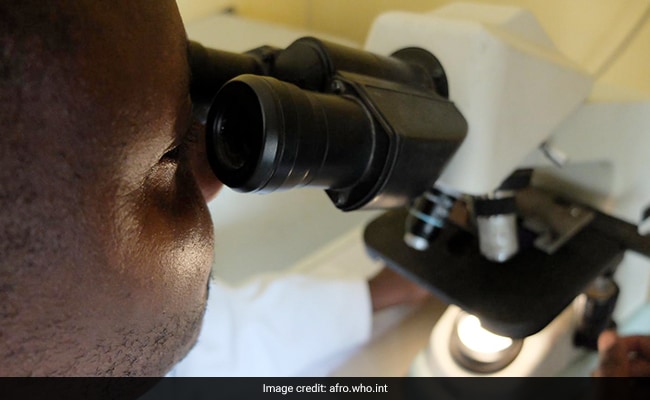The symptoms include high fever, headaches, muscular pain, vomiting and diarrhoea.
Malabo, Equatorial Guinea:
Nine people have died in Equatorial Guinea from an “outbreak” of the Marburg virus, which causes a hemorrhagic fever nearly as deadly as Ebola, the health minister said Monday, announcing that a province had been placed in quarantine.
The government had announced last week that it was investigating the cause of suspect cases of hemorrhagic fever in a densely forested eastern region near the borders of Gabon and Cameroon on Africa’s central western coast, but said only three people had shown “light symptoms”.
Health Minister Mitoha Ondo’o Ayekaba told a press conference that a health alert had been declared in Kie-Ntem province and the neighbouring district of Mongomo, with a “lockdown plan implemented” after consulting with the World Health Organization and the United Nations.
The quarantine is impacting 4,325 people in Kie-Ntem, he said.
The nine deaths occurred between January 7 and February 7, the minister added, with testing still to be carried out on a “suspicious” death in hospital on February 10.
The Marburg virus is a highly dangerous pathogen that causes severe fever often accompanied by bleeding, and often targeting several organs and reducing the body’s ability to function on its own.
It is part of the so-called filovirus family that also includes the Ebola virus, which has wreaked havoc in several previous outbreaks in Africa.
The natural host of the Marburg virus is the African fruit bat, which carry the virus but do not fall sick from it.
But the animals can pass the virus to primates in close proximity, including humans, and human-to-human transmission then occurs through contact with blood or other bodily fluids.
Fatality rates in confirmed cases have ranged from 24 percent to 88 percent in previous outbreaks, depending on the virus strain and case management, according to the WHO.
High alert
The WHO said in a statement Monday that in addition to the nine deaths, 16 other people in Kie-Ntem had shown suspect symptoms including fever and vomiting blood.
It marks the first Marburg outbreak in the central African country, though it noted previous outbreaks and sporadic cases in other parts of Africa, including in Angola, DR Congo, Guinea, Kenya, South Africa and Uganda.
Last July, Ghana had reported two Marburg deaths for the first time, in what were also the first cases in West Africa. Authorities declared an end to the outbreak in September.
There have been previous outbreaks and sporadic cases in other parts of Africa — in Angola, DR Congo, Guinea, Kenya, South Africa and Uganda.
The virus takes between two and 21 days to incubate, leading to abrupt symptoms of high fever, headaches, muscular pain, vomiting and diarrhoea — symptoms that can make Marburg difficult to diagnose initially, as they are similar to typhoid and malaria.
The WHO said it had dispatched specialised teams to support local authorities in Equatorial Guinea, an oil-rich state led since 1979 by the authoritarian President Teodoro Obiang Nguema Mbasogo.
Gabon and Cameroon had already implemented testing and border controls or restrictions in some areas after Equatorial Guinea announced the suspected Marburg cases.
(Except for the headline, this story has not been edited by NDTV staff and is published from a syndicated feed.)
Featured Video Of The Day
Student Dies In IIT Bombay. Suicide, Caste Discrimination Alleged


